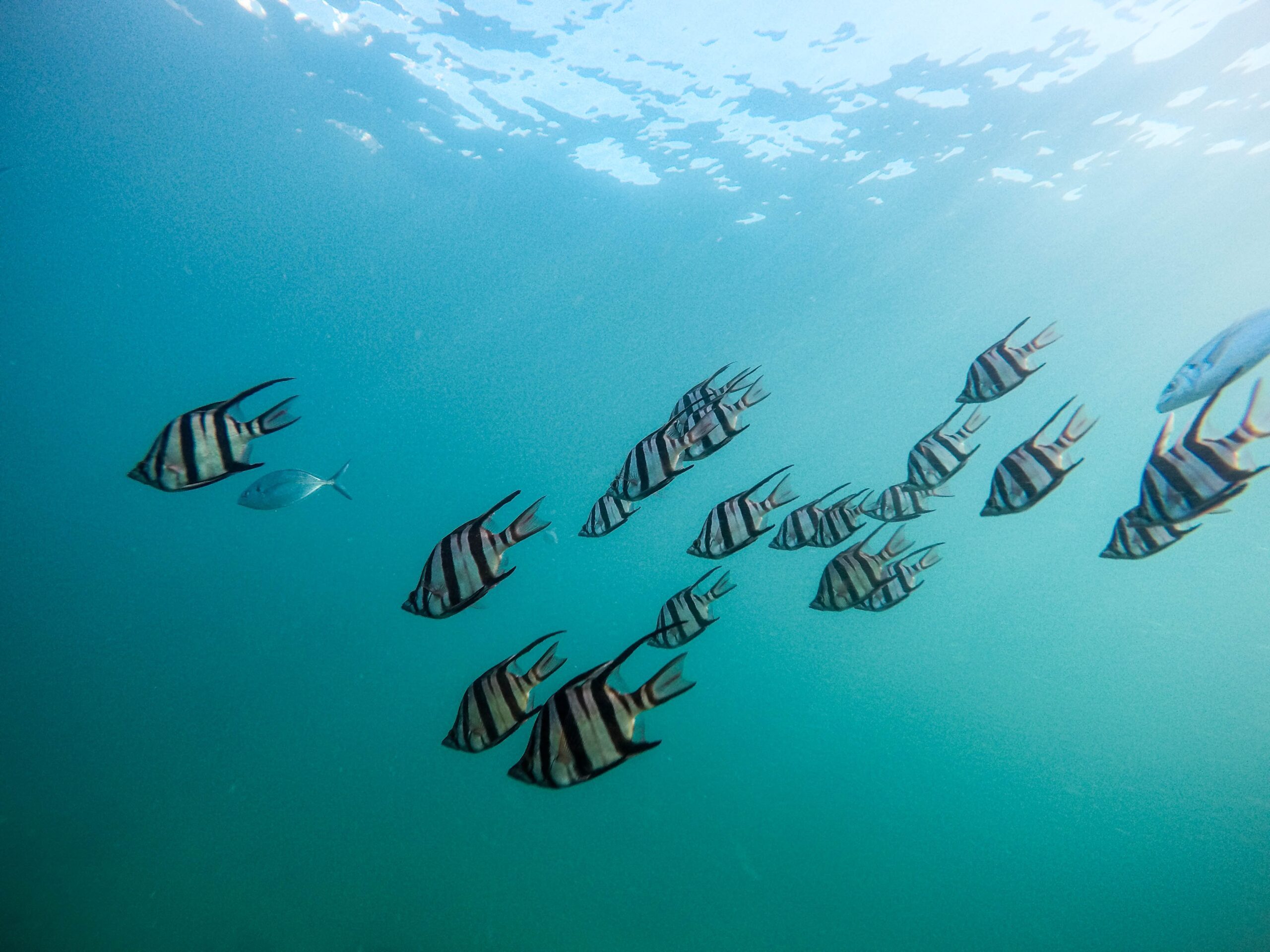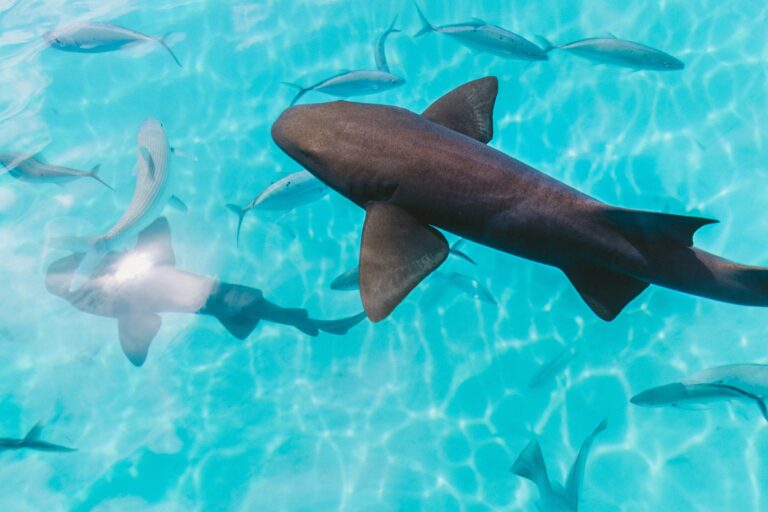Introduction
Beneath the waves of our planet’s vast oceans, a world of mystery unfolds, home to creatures that defy imagination. Among these deep-sea dwellers are the extraordinary gastropods, unique marine snails that navigate the ocean’s depths. In this exploration, we delve into the importance of conserving these remarkable beings, understanding the threats they face, and highlighting initiatives aimed at securing the future of these mysterious deep-sea gastropod species.
The Threats Faced by Deep-sea Gastropods
Deep-sea gastropods, fascinating creatures residing in the mysterious depths of the ocean, confront numerous threats that jeopardize their existence. Understanding these challenges is crucial for marine conservation efforts.
Human Activities
Human activities, particularly deep-sea mining and bottom trawling, pose a significant threat to deep-sea gastropod populations. The extraction of valuable resources from the ocean floor can lead to habitat disruption and direct physical damage to these delicate organisms. The relentless pursuit of resources without sustainable practices jeopardizes the fragile balance of deep-sea ecosystems, impacting gastropods and their habitats.
Climate Change
Climate change is a global menace impacting even the darkest corners of the ocean. Rising sea temperatures and alterations in ocean chemistry directly affect deep-sea gastropods. These creatures, adapted to specific environmental conditions, struggle to survive in the face of unprecedented climate shifts. Changes in temperature and acidity can disrupt their life cycles, reproductive patterns, and overall ecological roles, contributing to a decline in gastropod populations.
Habitat Destruction
Deep-sea habitats, often characterized by delicate and slow-growing ecosystems, are at risk of destruction due to various anthropogenic activities. The disturbance of these habitats, whether through resource extraction or pollution, directly endangers gastropods. Habitat destruction disrupts their feeding and breeding grounds, further challenging their ability to thrive in these unique environments.
The Impact on Biodiversity
The threats faced by deep-sea gastropods extend beyond individual species to impact the broader spectrum of biodiversity in the deep ocean. As vital components of the marine food web, the decline in gastropod populations can trigger a cascade effect, influencing other species that depend on them for sustenance. The intricate interdependence within deep-sea ecosystems makes preserving gastropod biodiversity crucial for maintaining the overall health of these ecosystems.
Potential Consequences for Marine Ecosystems
The potential consequences of the threats faced by deep-sea gastropods are far-reaching and could lead to a domino effect throughout marine ecosystems. The decline or extinction of gastropod species could disrupt predator-prey relationships, alter nutrient cycling, and impact the overall resilience of deep-sea ecosystems. It is imperative to recognize the intricate web of connections within these ecosystems to comprehend the broader implications of the challenges faced by deep-sea gastropods.
Unique Features and Adaptations of Deep-sea Gastropods
Exploring the depths of the ocean unveils a fascinating world, and deep-sea gastropods are among its remarkable inhabitants. These gastropods, a type of mollusk, exhibit unique features and adaptations that set them apart in the mysterious realm of the deep sea.
Deep-sea gastropods have evolved specialized characteristics to thrive in extreme conditions. One distinctive feature is their bioluminescence, a trait crucial for communication and navigation in the dark depths. Bioluminescent patterns on their bodies enable these gastropods to attract mates, repel predators, and navigate the lightless expanses they inhabit.
Another remarkable adaptation is their diverse shell morphology. Unlike their shallow-water relatives, deep-sea gastropods often possess transparent or gelatinous shells. This adaptation aids in buoyancy control and provides camouflage, allowing them to blend seamlessly into their surroundings. Some deep-sea gastropods even lack shells altogether, relying on internal structures for support.
Roles in Deep-sea Ecosystems and Biodiversity
Deep-sea gastropods play crucial roles in maintaining the delicate balance of deep-sea ecosystems. As scavengers, they contribute to the recycling of organic matter by feeding on detritus and decaying organisms. Additionally, some species are predators, preying on smaller invertebrates, thus regulating population dynamics in their environment.
The biodiversity of deep-sea gastropods is vital for ecosystem resilience. Their various feeding strategies, reproductive methods, and ecological niches contribute to the overall diversity of deep-sea life. As key components of the food web, these gastropods influence the abundance and distribution of other deep-sea organisms, creating a complex and interconnected ecosystem.
Scientific Discoveries and Medical Advancements
Studying deep-sea gastropods holds immense potential for scientific discoveries and medical advancements. The unique biochemical compounds present in their tissues, often evolved for survival in extreme conditions, have shown promise in various fields. Scientists are exploring these compounds for potential applications in pharmaceuticals, including pain management and anti-cancer drugs.
Moreover, the study of deep-sea gastropods contributes to our understanding of evolutionary processes in extreme environments. Unraveling the genetic and physiological adaptations of these organisms provides valuable insights into the broader mechanisms of life and survival, offering a treasure trove of knowledge for researchers and biotechnologists.

Conservation Initiatives for Deep-Sea Gastropods
Conserving deep-sea gastropods, a crucial aspect of marine biodiversity, requires targeted initiatives. Current efforts focus on understanding and preserving these fascinating creatures in their unique habitat.
Deep-sea gastropods, with their intricate ecosystems and vulnerable status, have garnered attention from researchers, environmentalists, and policymakers. Initiatives involve scientific studies to unravel their biology and ecology, providing a foundation for conservation strategies.
Marine scientists are leveraging advanced technologies such as remotely operated vehicles (ROVs) and autonomous underwater vehicles (AUVs) to explore deep-sea environments. These tools help in mapping gastropod habitats, identifying key areas for protection, and monitoring their populations.
Successful Case Studies and Collaborative Initiatives
Highlighting successful conservation endeavors showcases the impact of collaborative efforts. Case studies demonstrate the effectiveness of targeted actions in preserving deep-sea gastropods.
One notable example is the collaboration between research institutions, NGOs, and government bodies in creating marine protected areas (MPAs). These areas, strategically designated to safeguard marine life, have proven successful in supporting gastropod populations. By restricting human activities that may harm these delicate ecosystems, MPAs provide safe havens for gastropods to thrive.
Collaborative initiatives extend beyond borders, emphasizing the global nature of deep-sea conservation. Partnerships between countries, organizations, and communities foster knowledge-sharing and resource pooling, essential for effective conservation.
The Role of Marine Protected Areas and Sustainable Fishing Practices
Marine protected areas emerge as pivotal tools in gastropod conservation. By designating specific zones where human activities are regulated, MPAs act as sanctuaries. They play a dual role by not only preserving gastropod habitats but also supporting overall marine biodiversity.
In tandem with MPAs, sustainable fishing practices contribute significantly to gastropod conservation. Implementing methods that minimize bycatch and habitat disruption ensures the long-term health of deep-sea ecosystems. It involves adopting gear modifications, fishing quotas, and seasonal restrictions that strike a balance between human needs and environmental preservation.
The Importance of Public Awareness in Deep-Sea Gastropod Conservation
Public awareness plays a pivotal role in the conservation of deep-sea gastropods, the often-overlooked inhabitants of the ocean depths. These fascinating creatures face numerous threats, from climate change to deep-sea mining, making it imperative to educate the public about their ecological significance. By raising awareness, we empower communities to understand the fragility of deep-sea ecosystems and inspire collective efforts to preserve these unique marine environments. Through targeted campaigns and educational initiatives, we can ensure that the importance of deep-sea gastropod conservation resonates with a broader audience.
Engaging Communities in Marine Conservation Efforts
Engaging communities is a key strategy in effective marine conservation, including the preservation of deep-sea gastropods. Communities living near coastal areas often have a direct impact on the health of marine ecosystems. Initiatives that involve local residents in conservation efforts, such as beach clean-ups and educational workshops, create a sense of responsibility and stewardship. By fostering a connection between communities and the marine environment, we promote sustainable practices and instill a sense of pride in safeguarding the habitats of deep-sea gastropods. Collaboration at the grassroots level is essential for the long-term success of conservation endeavors.
The Role of Education and Outreach Programs in Fostering a Sense of Responsibility
Education and outreach programs are instrumental in fostering a sense of responsibility toward deep-sea gastropod conservation. These programs provide valuable information about the significance of these creatures and the threats they face. Through interactive workshops, school presentations, and informative materials, we can reach diverse audiences, from students to adults. By instilling a sense of responsibility and environmental ethics, education becomes a catalyst for positive behavioral change. Individuals armed with knowledge about deep-sea gastropods are more likely to make informed choices that contribute to the overall well-being of these delicate ecosystems.
Video Credit: Blue Orangutan
FAQs
Q. What makes deep-sea gastropods unique?
A. Deep-sea gastropods are unique due to their adaptations to extreme pressure, darkness, and low temperatures, setting them apart from their shallow-water counterparts.
Q. Why are deep-sea biodiversity hotspots crucial for conservation?
A. These hotspots harbor a rich diversity of species, including deep-sea gastropods, contributing to overall marine biodiversity and serving as indicators of ecosystem health.
Q. How does climate change affect deep-sea gastropods?
A. Climate change impacts ocean temperature and acidity, affecting the habitats of deep-sea gastropods and influencing their distribution and survival.
Q. Are there laws protecting deep-sea gastropods?
A. While there are no specific laws for gastropods, international agreements like UNCLOS aim to regulate activities impacting deep-sea ecosystems.
Q. How can individuals contribute to deep-sea gastropod conservation?
A. Individuals can contribute by supporting marine conservation organizations, raising awareness, and adopting sustainable practices to reduce their environmental footprint.
Q. Can deep-sea gastropods be bred in captivity for conservation?
A. While challenging, some research explores the possibility of breeding deep-sea gastropods in captivity to better understand their life cycle and contribute to conservation.
Conclusion
As we conclude our journey into the abyssal realms where deep-sea gastropods thrive, it becomes clear that their conservation is not merely a matter of protecting a species but safeguarding the delicate balance of entire ecosystems. The threats they face are significant, yet so too are the possibilities for positive change. Through dedicated conservation efforts, public awareness, and sustainable practices, we can ensure that these unique deep-sea gastropod species continue to grace our oceans, reminding us of the incredible biodiversity that our planet harbors beneath the waves. In preserving these enigmatic creatures, we not only protect a part of nature’s wonders but also contribute to the resilience and health of our global marine environment.
UP NEXT
The Threat of Ocean Conservation Burnout: Strategies for Sustainable Advocacy



